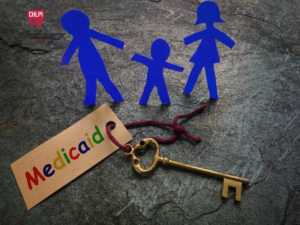Originally written by Danielle Nierenberg and published on Forbes on March 17, 2022.
Approximately 40% of food in the U.S. is wasted, and the U.S. spends $408 billion each year processing, transporting, storing, and disposing of food that’s never eaten. Meanwhile food insecurity is expected to affect more than 38 million Americans. Pandemic-induced increases in food insecurity have left food banks struggling to keep up—and surging food prices and supply chain issues further exacerbate the problem.
But there are solutions.
In 1996, Congress passed the federal Bill Emerson Good Samaritan Food Donation Act (42 U.S. Code § 1791) with bipartisan support. The legislation encouraged companies to donate their surplus food and grocery products to nonprofits by providing civil and criminal liability protection.
The Emerson Act was revolutionary at the time. But more than 25 years later, many of its provisions are still unclear. And because the act has never been contested in court, many fear legal liability: Often, food goes to waste because businesses are afraid that even if they do everything right and follow all of the food safety laws and best practices, someone might get sick and come back to sue them.
Plus, the act uses terms that are not properly defined, such as “in good faith.” Making vague definitions clearer throughout the legislation will help make larger retailers more comfortable donating with confidence.
Now, the newly introduced bipartisan Food Donation Improvement Act of 2021 (S.3281 and H.R.6251) aims to clarify and strengthen where previous legislation falls short. In addition to clarifying crucial terms, the act allows for direct donations to individuals from grocery stores, restaurants, schools, and more. The bill has been introduced in the Senate (by Senators Blumenthal, D-CT and Toomey, R-PA) and the House (by Reps. McGovern, D-MA; Newhouse, R-WA; Pingree, D-ME; and Walorski, R-IN) with the goal of expanding food donation efforts across the country. These amendments to the Emerson Act provide critical guidance and protection to help increase food donations within our modern food system, and in turn, combat food waste and food insecurity.
A cohort of corporations and nonprofits have also stepped forward in support of the legislation. In October 2020, global wellness company WW International launched the Healthy Living Coalition, a group of brand and nonprofit partners combining resources to address food justice and nutrition security. And in November 2021, 28 organizations—including Harvard Law School Food Law and Policy Clinic, Panera Bread, Ahold Delhaize USA, and City Harvest, Dole Packaged Foods, and Eat Just —joined as signatories to WW’s open letter urging Congress to pass the Food Donation Improvement Act.
But this is just a start to solving the food waste and food insecurity crises in the U.S. The government must take more action, including expanding the federal enhanced tax deduction for food donation, which currently discourages farmers from donating and nonprofits from innovating.
Most farmers operate at extremely low-profit margins and don’t make enough to claim the enhanced tax deduction for food donation—they need an alternative tax credit option. And while many companies and organizations are eligible for deductions, they face expensive barriers to donating excess food such as cost of transportation. The government can include transportation as a separate cost eligible for an enhanced tax deduction.
Every person, organization, and company have a role to play in addressing America’s food waste. By supporting and passing the Food Donation Improvement Act of 2021, we can make it safer and easier to connect excess food to those in need. This is a critical first step towards a more equitable and sustainable future food system in America.
To learn more or get involved in this initiative, click here.
This piece was co-authored with Mindy Grossman, CEO of WW International.


